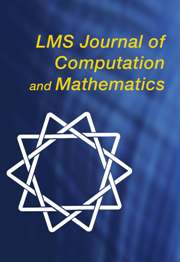No CrossRef data available.
Article contents
Muller condition and fairness on multitransition systems
Published online by Cambridge University Press: 01 April 2011
Abstract
This paper presents an extension of a result by Guessarian and Niar to the framework of multitransition systems. In the case of a single process, Guessarian and Niar had shown that the set of fair computations of regular SCCS processes coincides with the class of ε-free ω-regular languages. Here, in the case of multitransition systems, we show essentially that the sets of fair computations on multitransition systems are strictly included in the class of ε-free ω-regular N-languages. The inclusions of these fair sets into the class of ε-free ω-regular N-languages are obtained by showing that the strict (respectively weak, strong) fair condition can be simulated by the Muller acceptance condition on multitransition systems. The strictness of the inclusions is obtained by exhibiting two counter-examples showing that the reverse is false, that is, not every ω-regular N-language is the set of fair computations of some multitransition system.
- Type
- Research Article
- Information
- Copyright
- Copyright © London Mathematical Society 2011


